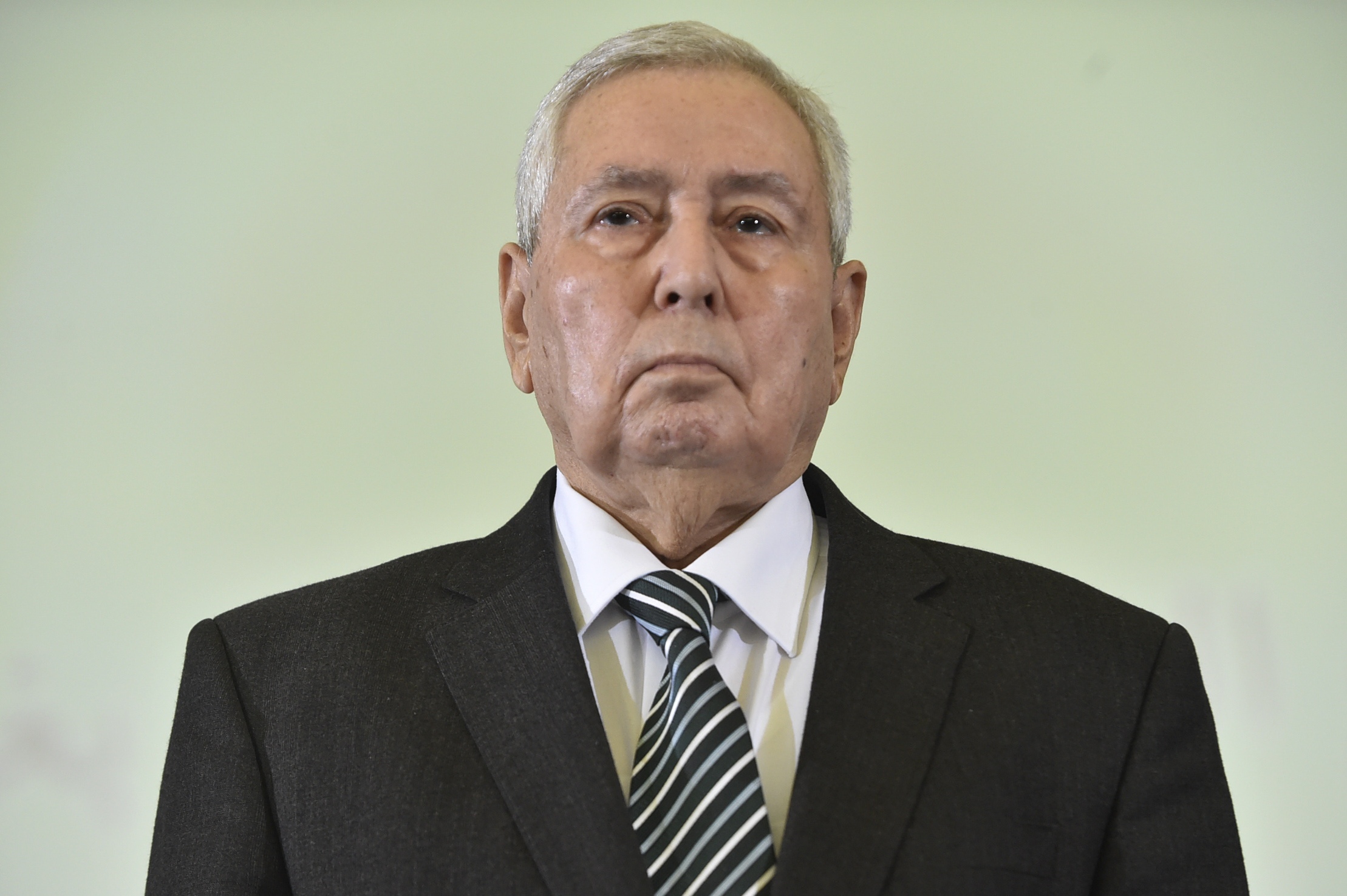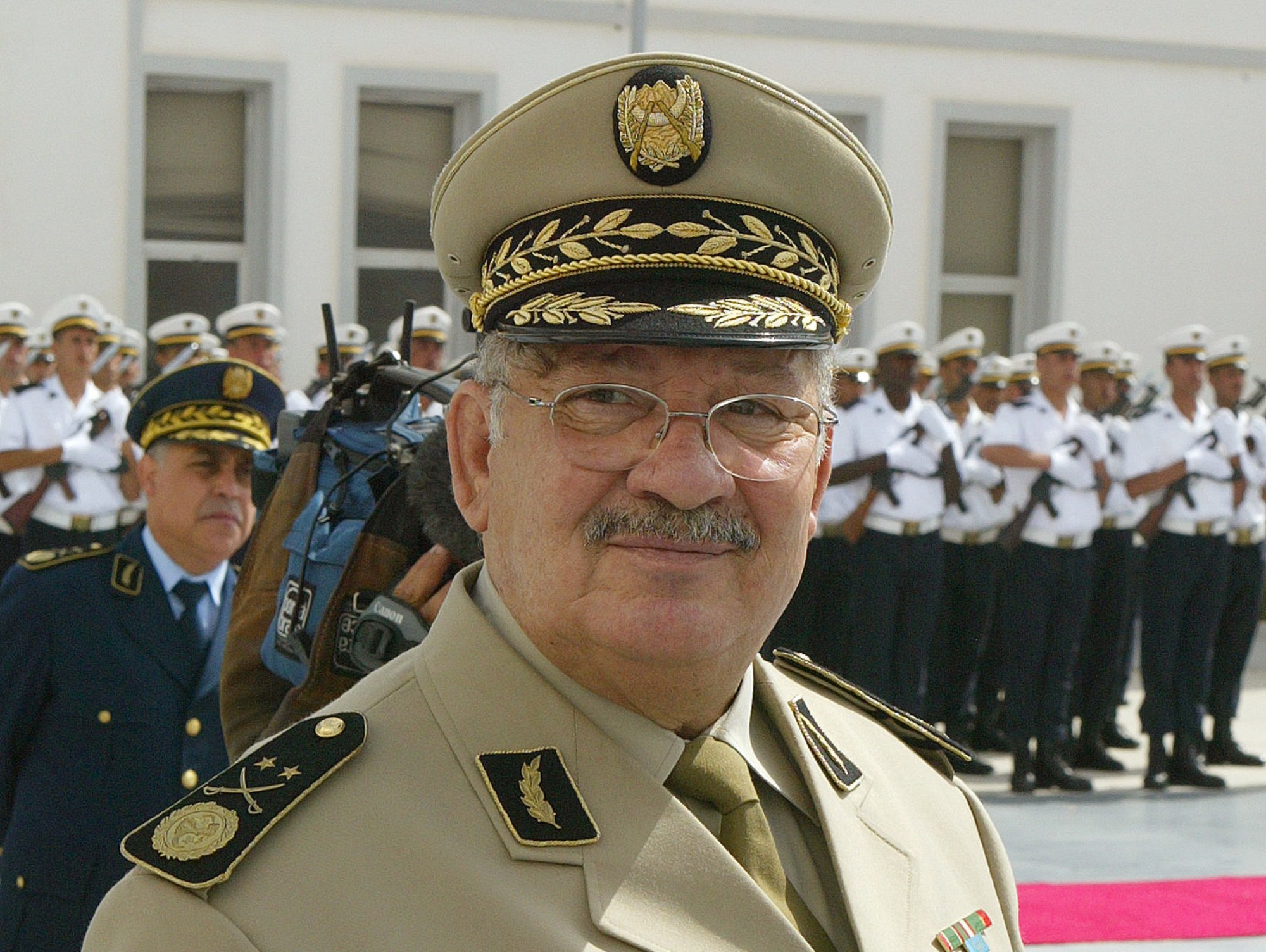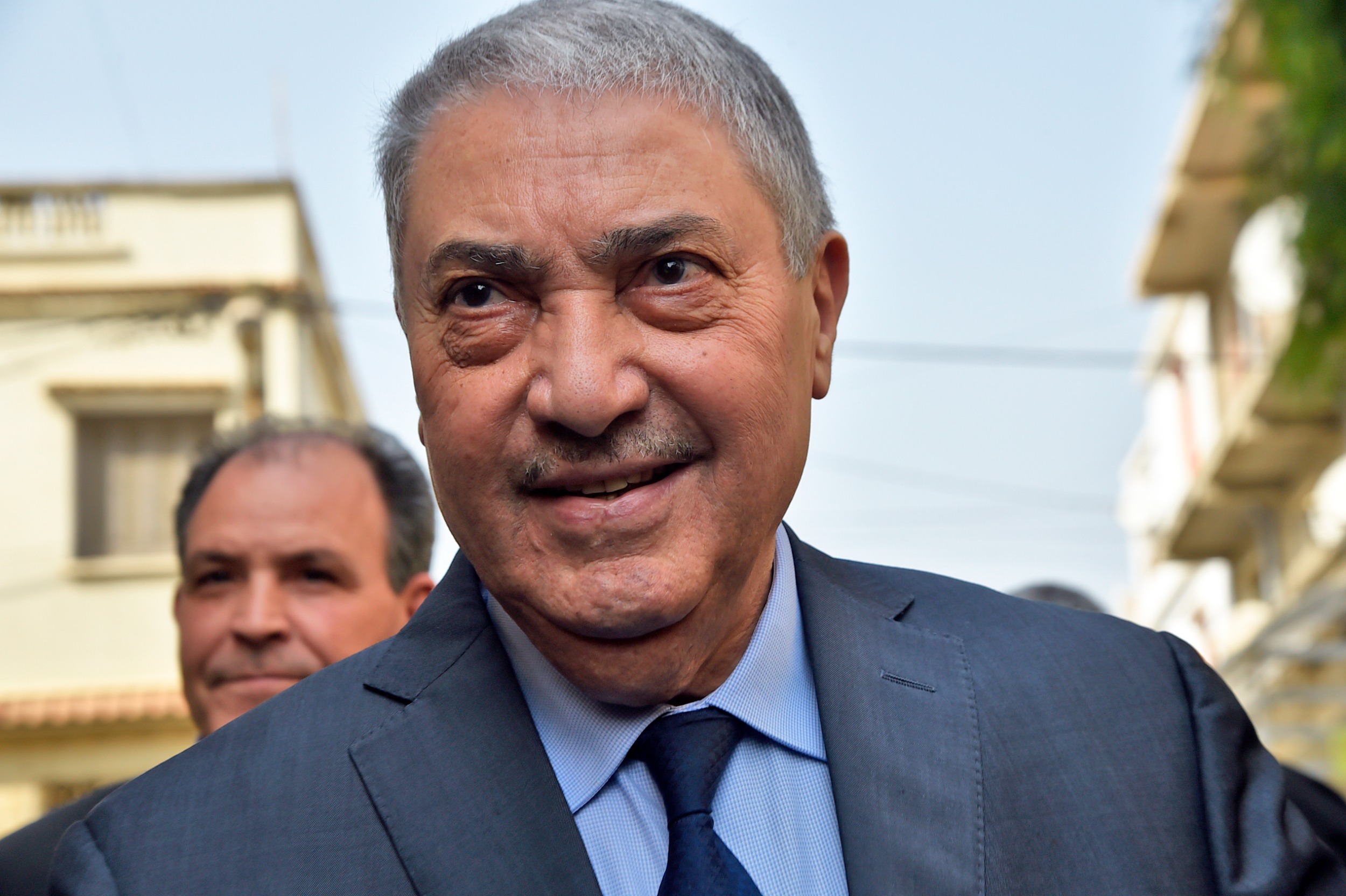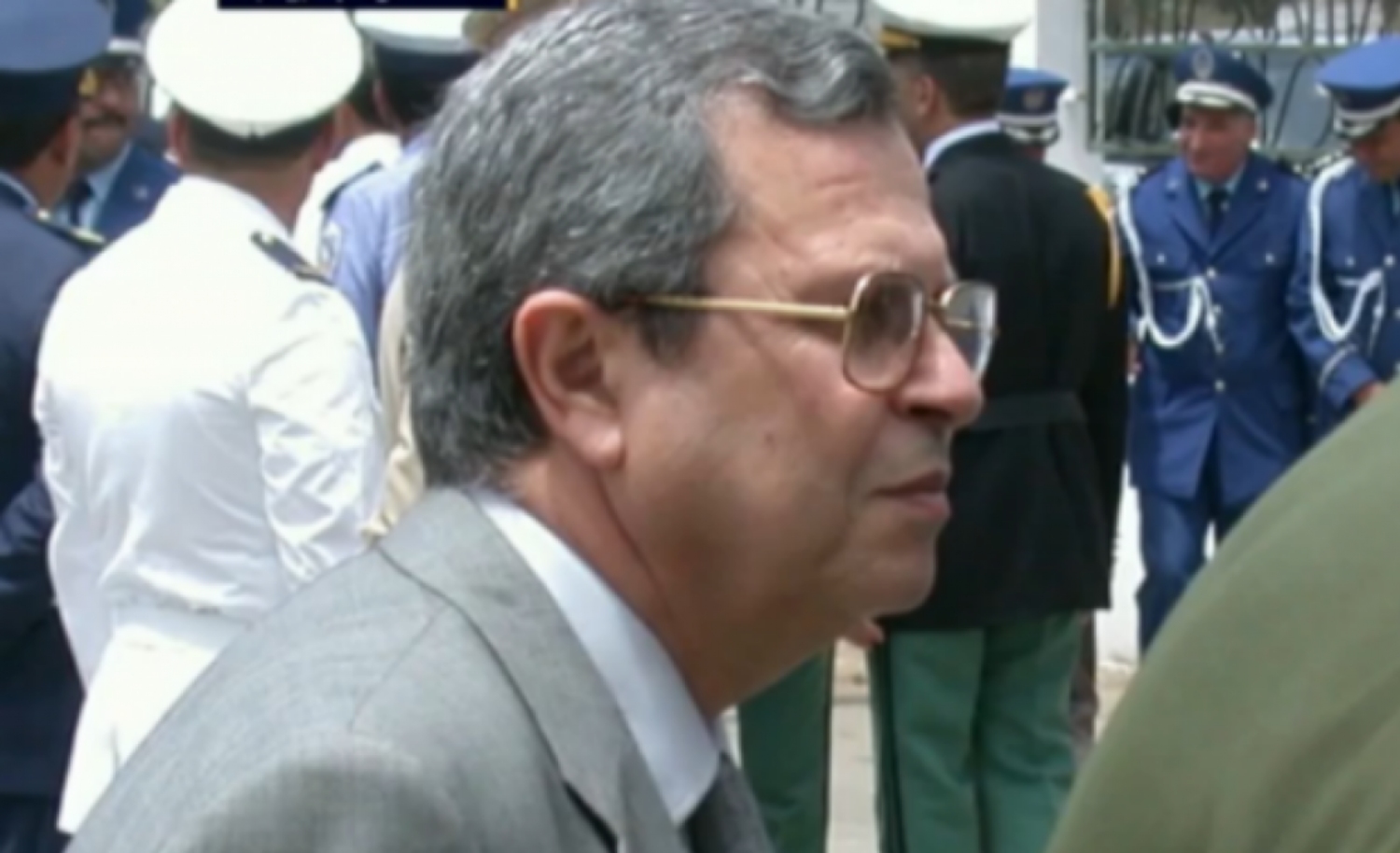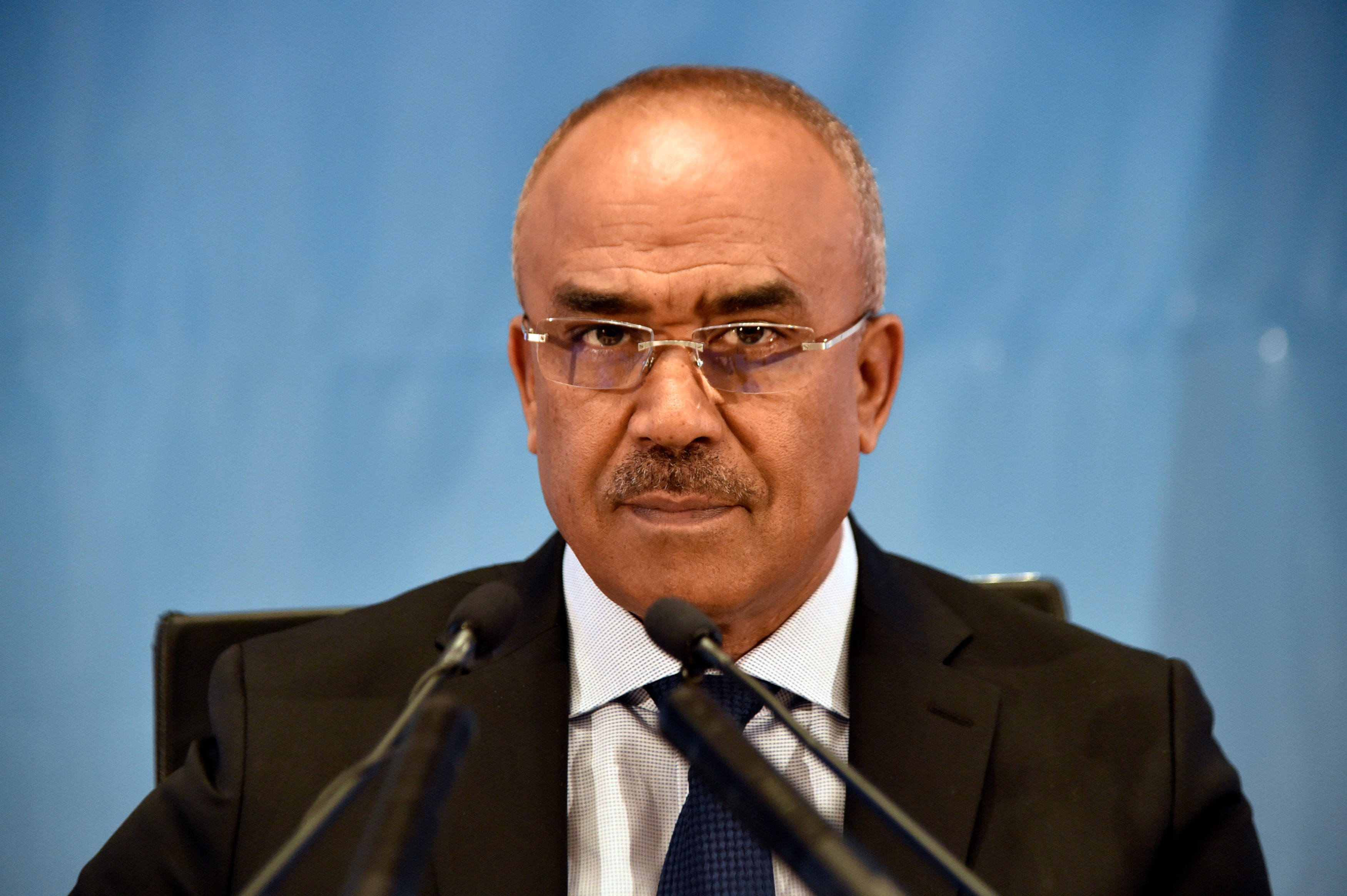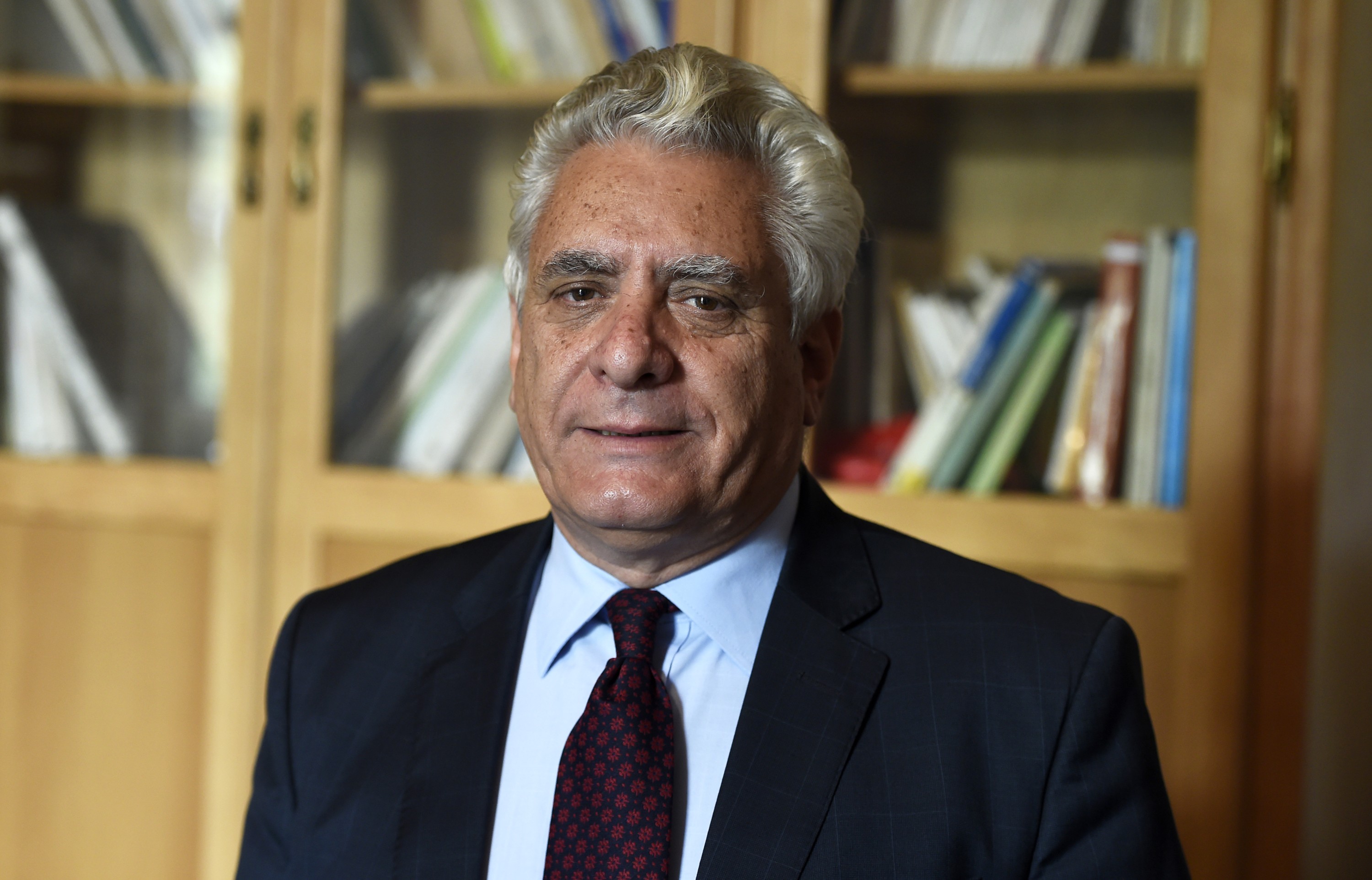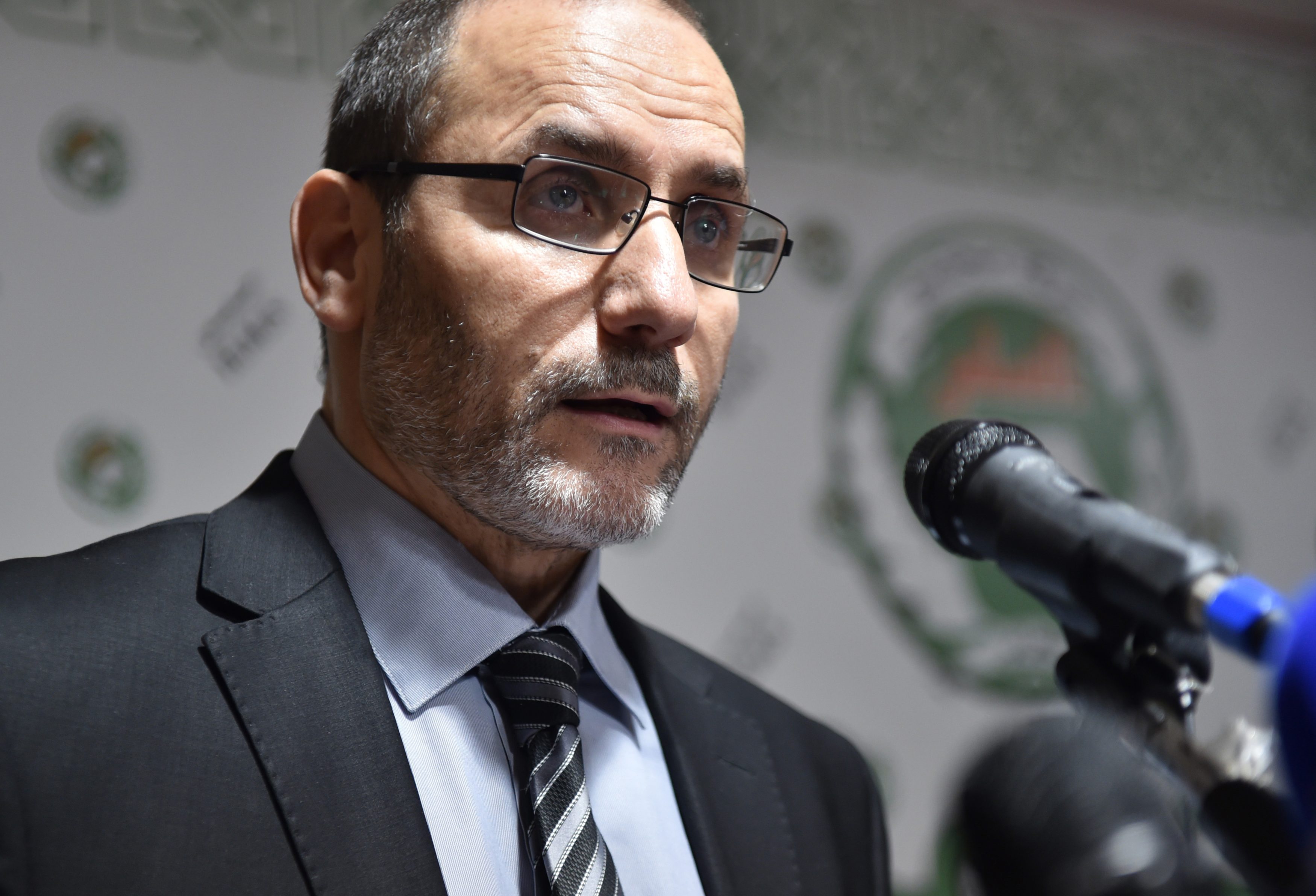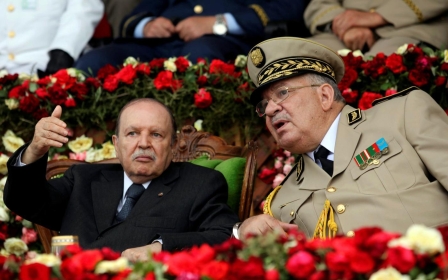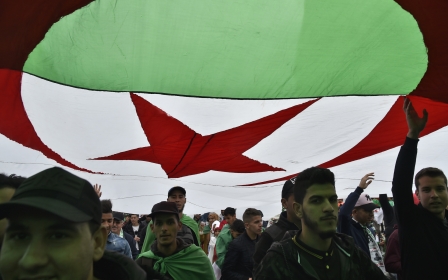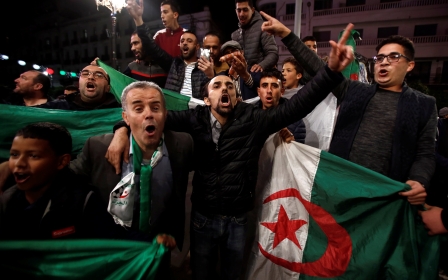Meet the seven main political actors shaping Algeria after Bouteflika

In the span of a few short weeks, the political status quo that had seemed immutable in Algeria has been overturned. Waves of protest have led to President Abdelaziz Bouteflika renouncing his bid for a fifth mandate, before stepping down altogether.
But Bouteflika's resignation alone has not erased the country's long-established class of political power-brokers, many of whom are believed to operate behind the scenes and are ominously known as le pouvoir (the power) or le systeme (the system) among Algerians.
In fact, this political class has cemented its position of power during the former head of state's 20-year rule. While many are working to make sure their plans for a post-Bouteflika Algeria preserve their spheres of influence, demonstrators and opposition figures have vowed to eradicate all remnants of Bouteflika’s regime.
Generals and ministers, regime loyalists and human rights defenders: who are the names to know as Algeria negotiates a new chapter of its history?
Abdelkader Bensalah
New MEE newsletter: Jerusalem Dispatch
Sign up to get the latest insights and analysis on Israel-Palestine, alongside Turkey Unpacked and other MEE newsletters
On Tuesday, the 76-year-old president of the upper chamber of Algeria's parliament - known as the Council of the Nation - was named interim president, in accordance with Algerian law upon a president's resignation.
Abdelkader Bensalah has been at the head of the Algerian Senate for some 17 years.
Despite suffering from his own health issues, Bensalah also served as Bouteflika's "personal representative" during visits abroad after the former president suffered a debilitating stroke in 2013.
He was one of the main founders of the Democratic National Rally (RND) Party, led by former prime minister Ahmed Ouyahia. In the 1990s, Bensalah also led the National Council of Transition, which replaced the country's parliament following its dissolution in 1992 in the early months of the Algerian civil war.
Following Bouteflika's resignation on 2 April, demonstrators called for Bensalah to leave politics due to his status as a prominent figure during the ex-president's reign - and due to the widely held view that he embodies le pouvoir in Algeria more generally.
Protesters once again took to the streets on Tuesday following his appointment as interim president, which was confirmed by the parliament.
Even within the wider political system that the protesters have denounced, Bensalah is not perceived as a consensus figure. Instead, his lengthy CV is seen as a hurdle to the credibility of any political transition he may lead.
Ahmed Gaid Salah
The People's National Army (ANP) chief of staff since 2004, Gaid Salah has found himself at the centre of the political maelstrom since mass popular protests broke out across Algeria in February.
A long-term Bouteflika loyalist, the military chief publicly abandoned the president a month into the demonstrations, calling for the country's parliament to declare him "unfit to rule".
Since then, Gaid Salah has presented himself as the "guarantor" of a "constitutional" and controlled transition.
But Algerian demonstrators fear that the army under Gaid Salah's leadership may take over the "revolution of smiles".
The general has concentrated control of the country's entire intelligence apparatus in his own hands, and has insisted on a legal transition that would leave actors of the old regime in positions of power.
Ali Benflis
Ali Benflis, a 74-year-old former lawyer and prosecutor, ran against Bouteflika in the 2004 and 2014 presidential elections.
The two men know each other very well: Benflis was Bouteflika's presidential campaign manager in 1999, before taking up the sensitive post of presidential cabinet chief of staff, and then serving as the head of government between 2000 and 2003.
Since then, his disagreements with the former president have become notorious, as Benflis has regularly expressed his opposition to Bouteflika and in 2015 created his own political party, Talaie el-Houriat (Vanguard of Freedoms).
Benflis now argues in favour of a consensus presidency or a presidential college lasting no longer than six months, in order to prepare a future presidential election.
Mohamed 'Toufik' Mediene
The former leader of Algeria's now-defunct Intelligence and Security Department (DRS), Mohamed Mediene remains a mystery.
Widely known as "General Toufik" or simply "Toufik", the 80-year old was forced into retirement by Bouteflika in 2015 after reigning over Algeria's "deep state" for 25 years, a distinction that also saw him dubbed the "God of Algeria".
Under Mediene's leadership, the DRS became a security behemoth comprised of both intelligence services and a secret police tasked with quashing dissent.
Jealous of General Toufik's power, Bouteflika and his inner circle gradually weakened the DRS, starting in 2013 and culminating in the institution's full dissolution three years later.
After falling off the radar, Mediene suddenly resurfaced on 30 March as an emissary of Said Bouteflika, the fallen president's brother.
Liamine Zeroual, who served as Algeria's president in the 1990s, said Mediene had reached out to him on Said Bouteflika's behalf to ask him to lead a transitional government. Zeroual turned down that proposal.
Analysts believe the enigmatic general will continue to operate in the shadows, however, pushing for a transition that would see his eternal rival, Ahmed Gaid Salah, lose his grip on power.
Noureddine Bedoui
Noureddine Bedoui was gifted a poisoned chalice by Bouteflika: leadership of the most unpopular government since Algeria's independence in 1962.
At 59, Bedoui is a relatively youthful figure in Algerian politics, where most other leaders are over the age of 75.
Appointed prime minister in mid-March, he was tasked with cobbling together a cabinet while demonstrators were calling for the downfall of all the pillars of the old regime. He announced the formation of a new government on 31 March - only for Bouteflika to step down two days later.
The opposition has dubbed Bedoui "minister of electoral fraud" due to his role organising elections as the minister of interior between 2015 and March this year.
Bedoui is also known for being close to the former president's youngest brother, Abderrahim Bouteflika, whom he met when the latter served as secretary-general of the Ministry of Professional Education several years ago.
On 3 April, Bedoui swore to accredit more political parties and associations - but Algerian protesters have remained uncompromising in their call for the prime minister to step down.
Mustapha Bouchachi
A public speaker and human rights defender since the mid-1980s, when the country was under single-party rule, 65-year-old lawyer Mustapha Bouchachi has prevailed as one of the spokespeople for Algerian dissent.
The Algiers native was the president of the Algerian League for the Defence of Human Rights (LADDH) from 2007 to 2012.
He stepped down as an MP along with fellow members of the Socialist Forces Front (FFS) party in protest of the parliament's status as a puppet of the Bouteflika regime.
In protests, both on the ground and on social media, Bouchachi has been hailed as a potential representative of the popular movement that emerged on 22 February.
While he has declined all proposals seeking to turn him into the leader of the "revolution of smiles", his non-partisan, rights-based approach has put him in prime position to be involved in a political transition freed from the influence of Bouteflika's old guard.
Abderrazak Makri
Abderrazak Makri, a 58-year-old doctor, is open about his presidential ambitions.
Like Benflis, Makri planned to run in the vote initially scheduled for 18 April, which has since been cancelled outright, but he withdrew his candidacy after Bouteflika announced his intention to run for a fifth term. The now former president's resignation has changed things, though.
Makri leads the Movement of Society for Peace (MSP) party, believed to be close to the Muslim Brotherhood.
An intelligent politician, he played a central role in 2018 negotiations with Said Bouteflika to push back the presidential election in exchange for more prominent MSP participation in a post-Bouteflika transition.
Today, Makri paints himself as the number one opposition figure in Algeria - a clear break from his party's traditional entryist attitude, since the MSP was a member of the presidential alliance up until 2012.
Styling himself as Algeria's "Ghannouchi" - in reference to the leader of Tunisa's Ennahda movement - he aims to become a central figure in Algeria's political transition, calling for an open presidential election outside of the old regime's control.
- The article is an edited translation of a story that was originally published by Middle East Eye's French website.
Middle East Eye delivers independent and unrivalled coverage and analysis of the Middle East, North Africa and beyond. To learn more about republishing this content and the associated fees, please fill out this form. More about MEE can be found here.


